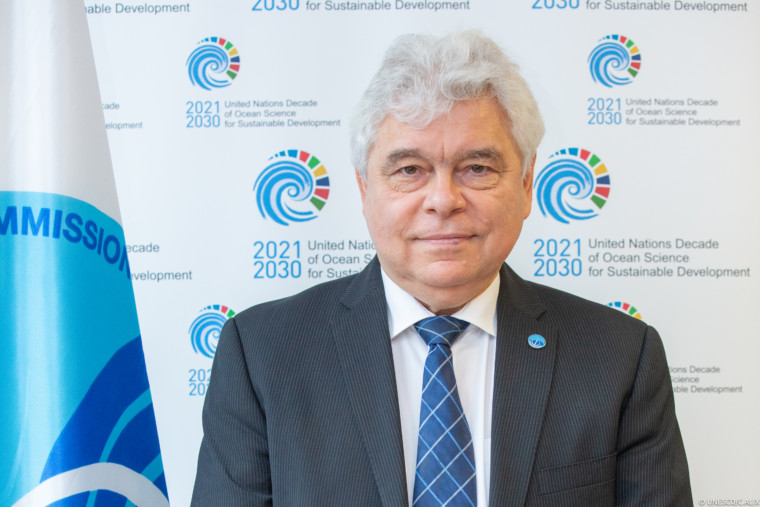Dr. Vladimir Ryabinin is the Executive Secretary of the Intergovernmental Oceanographic Commission (IOC) of UNESCO and Assistant Director-General of UNESCO. He is an oceanographer, marine engineer, meteorologist, and climatologist. He graduated in 1978 as marine engineer, defended his Ph.D. in 1982, and received the academic distinction of Doctor of Sciences Thesis in 1995. In 1980 he started to work at the Hydrometeorological Center of Russia occupying positions from junior researcher to a head of laboratory. In 1990-1991 he gave a course of lectures on numerical modelling at the Geographical Faculty of the Moscow State University. In 2000 he joined the International Ocean Institute, initially as consultant and later was selected as the Executive Director. In late 2001 he joined the World Meteorological Organization (WMO) as the Senior Scientific Officer of the World Climate Research Programme, contributing to international coordination of climate research on polar, ocean, cryosphere, stratosphere and atmospheric chemistry. He was appointed as Executive Secretary of IOC following voting to form a short list of preferential candidates by the IOC Executive Council. He took the post in March 2015. In 2017, by a Presidential decree he received a distinction of the Emeritus Meteorologist of the Russian Federation. Dr. Ryabinin’s research started in 1970s with studies of turbulence in stratified fluids and analytical studies of the ocean circulation and thermodynamics. He is one of key contributors to the first technology of medium-range (weekly time scale) weather prediction in the USSR (1980s). In 1990s he was the scientific leader of national research on marine meteorological services. Also, then he led a major shelf engineering study aimed at determining the safe burying depth of a polar offshore pipeline in presence of sea ice and. He is originator of several mathematical models for ocean, atmosphere, wind waves, etc., and an author of hundreds of scientific publications. The current work of IOC and Dr Ryabinin is focussed on creating a solid scientific foundation for managing the ocean sustainably, including through the UN Decade of Ocean Science for Sustainable Development, 2021-2030


